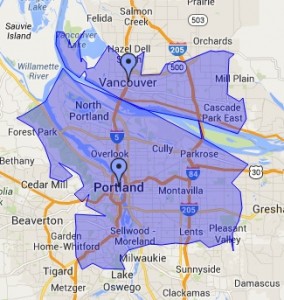There is of course no such thing as a standard ideal relationship between AdWords service providers (like me) and AdWords consumers (like my clients). Each situation is so different that what may suit one sevice provider-client relationship may be disastrous for another.
But based on experience I have identified some characteristics that lead to success. Success being a long term client for me due to that client in turn having their own success (money/profit) due to my efforts. Now keep in mind that I am primarily an AdWords specialist, I do broader PPC (pay-per-click) work and some SEO (Search Engine Optimization) advising for my longer term clients, but my core competency, what I market, is Google AdWords management, consulting, and setup. In addition my focus is small business, so what I consider ideal qualities in client relationships may not be the same as a full blown search agency looking for Fortune 500 clients.
Here is the elevator speech version that I have been using for sometime now when I tell people what I consider an ideal prospect.
“I have had a lot of success with clients that have come to me after they have been managing their own AdWords account for a period of time.”
Why? Those clients have usually already established several key elements.
1 – They know AdWords can be profitable, or has a high chance of being profitable, for their enterprise.
2- They know this because they have Analytics and a strong Conversion Strategy in place.
3- They know they do not have the time or expertise to take things to a higher level of profit.
Someone that fits this profile is also in a better position to appreciate what I do.
Now that doesn’t mean I have not had success with clients that deviate from the above profile. But to paraphrase something said to me by an SEM noteworthy, Kent Lewis – “A promising client has the attitude and resources that enable us to help them.” As SEM professionals know, success can hinge on the communication and coordination they have with their clients.
So let’s look at this from another angle, what are the problems that must be addressed if a prospect does not fit the ideal profile.
1- If a prospect has little or no experience with AdWords their expectations have to be adjusted. Google makes AdWords seem so simple, so easy to get into, and makes it sound so obviously effective, that it creates unreal expectations for the uninitiated. That is why I have stuck to a low level initial period with clients, find out where reality is before you get too deep. This is tough because so much work can go into AdWords upfront. But my model is based on retaining current clients, not churning new ones. I want to flush out unreasonable expectations as immediately as possible with as little pain as possible for all involved, not farther into the relationship where unaddressed expectations can lead to dissatisfaction. A low level initial period (both in time and money) eases the pressures as things such as expectations, goals, and methods are initially explored. As I said, this is not easy given the nature of PPC. But so far I have been happier than not taking this approach. Time will tell.
2- I am most effective, substantially so, when I have a client who can work with me in implementing Analytics & ROI metrics (Google Analytics, Ecommerce, etc) and think through specific conversion strategies with me (mainly – how, when, where, and why to use the various options for AdWords Conversion Tracking). When I am in a situation where simple technical implementation is a problem, then it is a huge red flag and potential roadblock to success. As a “specialist” as opposed to a large agency, I do not have an engineer in the cubicle next to me. I can bring people in but that is of course is an expense. The optimal situation is that the client has adequate technical resources available to them already. Unfortunately my experience is that the general web development community is still not very search or metrics savvy. With exceptions of course 😉
If a client has a documented track record (metrics) with AdWords, then they are more apt to be able to measure and appreciate my efforts. If they don’t, the value of my work is more nebulous, harder to identify.
3- Good AdWords management and analysis are time consuming. If a prospect understands this, and appreciates it, invariably they go looking for professional help. I do not know many small business people, service professionals, or entrepreneurs sitting around twiddling their thumbs. Time is money. Know when to hire a professional so you spend your time making money through your core competencies. AdWords can be a dangerous game if played too long by do-it-youselfers, regardless of the impression Google may give. Know when it is time to pass the baton to a pro.
I have longterm relationships with clients that do not fit much of the positive profile, in fact some better fit the negatives. But those clients are exceptions. For the most part my clients/prospects are a mixed bag of both positive and negative. That is real world.
To summarize, speaking for myself: Quality prospects know that AdWords work, or know enough to strongly feel it should or could work because they have metrics (measurements) that tell them so, but do not have the time or know how to take things to an even more profitable level. Such prospects have a higher rate of turning into long term satisfied clients.
Even though this piece pertains to my particular situation, I think there are parts that apply to broader SEM and SEO, and to vendors targeting mid-to-big business.
Related Links/Posts
Podcast – Listen to Market Accelerators interview of Tom Hale on the subject of Google AdWords for Small Business.
-T
Tom Hale
AdWords Specialist – Internet Strategist
http://ThomasCreekConcepts.com/
http://forum.sempdx.org/



